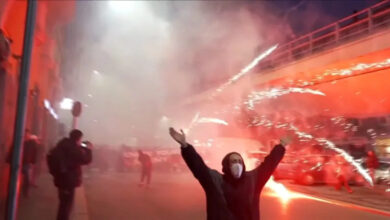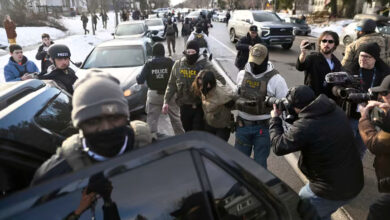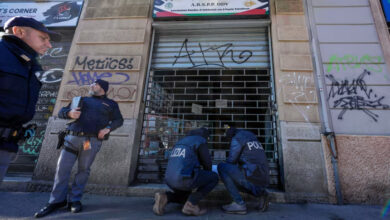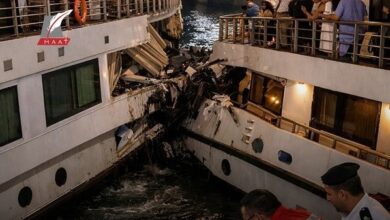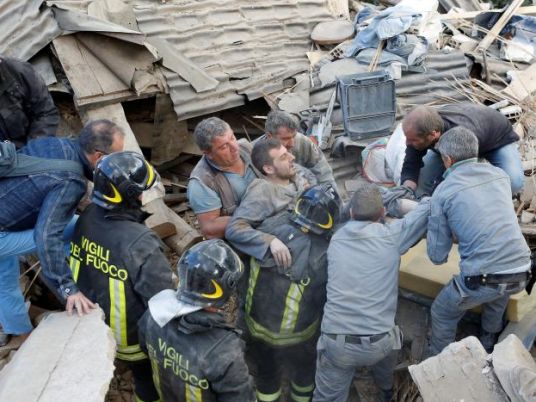
At least 73 people have died in an earthquake which devastated a string of small towns in central Italy in the early hours of Wednesday, the civil protection department said.
A strong earthquake devastated a string of mountainous towns over a swathe of central Italy early on Wednesday, trapping residents under hills of rubble, with at least 73 people believed killed and many missing.
The quake struck in the early hours of the morning when most people were asleep, razing homes and buckling roads in a cluster of towns and villages some 170 km east of Rome.
The emergency services released an aerial photograph showing swathes of the town of Amatrice flattened, while debris filled the streets of nearby Accumoli.
"Now that daylight has come, we see that the situation is even more dreadful than we feared, with buildings collapsed, people trapped under the rubble and no sound of life," said Accumoli mayor Stefano Petrucci.
Wide cracks appeared like open wounds on the buildings that were still standing.
Residents were sifting through the rubble with their bare hands before emergency services arrived with earth-moving equipment and sniffer dogs.
The quake hit during the summer when the populations of the towns and villages in the area, normally low during the rest of the year, are swelled by vacationers.
A family of four, including two boys aged 8 months and 9 years, were buried when their house imploded. Rescue teams used heavy equipment to try to clear the wreckage, but there was no indication they had survived the disaster.
Police said two people were known to have died in the nearby village of Pescara del Tronto. Some 100 people were still unaccounted for in the village of Arquata del Tronto and two bodies were removed from the debris in Amatrice.
"Three quarters of the town is not there anymore," Amatrice mayor Sergio Pirozzi told state broadcaster RAI. "The aim now is to save as many lives as possible. There are voices under the rubble, we have to save the people there."
A Reuters reporter said the town's hospital had been badly damaged by the quake, with patients moved into the streets. RAI reported that two Afghan girls, believed to be asylum-seekers, were also missing in the town.
The earthquake caused damage to towns in three regions – Umbria, Lazio and Marche.
The U.S. Geological Survey, which measured the quake at 6.2 magnitude, said it struck near the Umbrian city of Norcia, while Italy's earthquake institute INGV registered it at 6.0 and put the epicentre closer to Accumoli and Amatrice, the two towns that appeared to be hardest hit.
The damage was made more severe because the epicentre was at a relatively shallow 4 km below the surface of the earth.
Multiple aftershocks
Residents of Rome were woken by the quake, which rattled furniture, swayed lights and set off car alarms in most of central Italy.
"It was so strong. It seemed the bed was walking across the room by itself with us on it," Lina Mercantini of Ceselli, Umbria, about 75 km away from the hardest hit area, told Reuters.
Olga Urbani, in the nearby town of Scheggino, said: "Dear God it was awful. The walls creaked and all the books fell off the shelves."
INGV reported 60 aftershocks in the four hours following the initial quake, the strongest measuring 5.5.
Italy sits on two fault lines, making it one of the most seismically active countries in Europe.
The last major earthquake to hit the country struck the central city of L'Aquila in 2009, killing more than 300 people.
The most deadly since the start of the 20th century came in 1908, when an earthquake followed by a tsunami killed an estimated 80,000 people in the southern regions of Reggio Calabria and Sicily.

